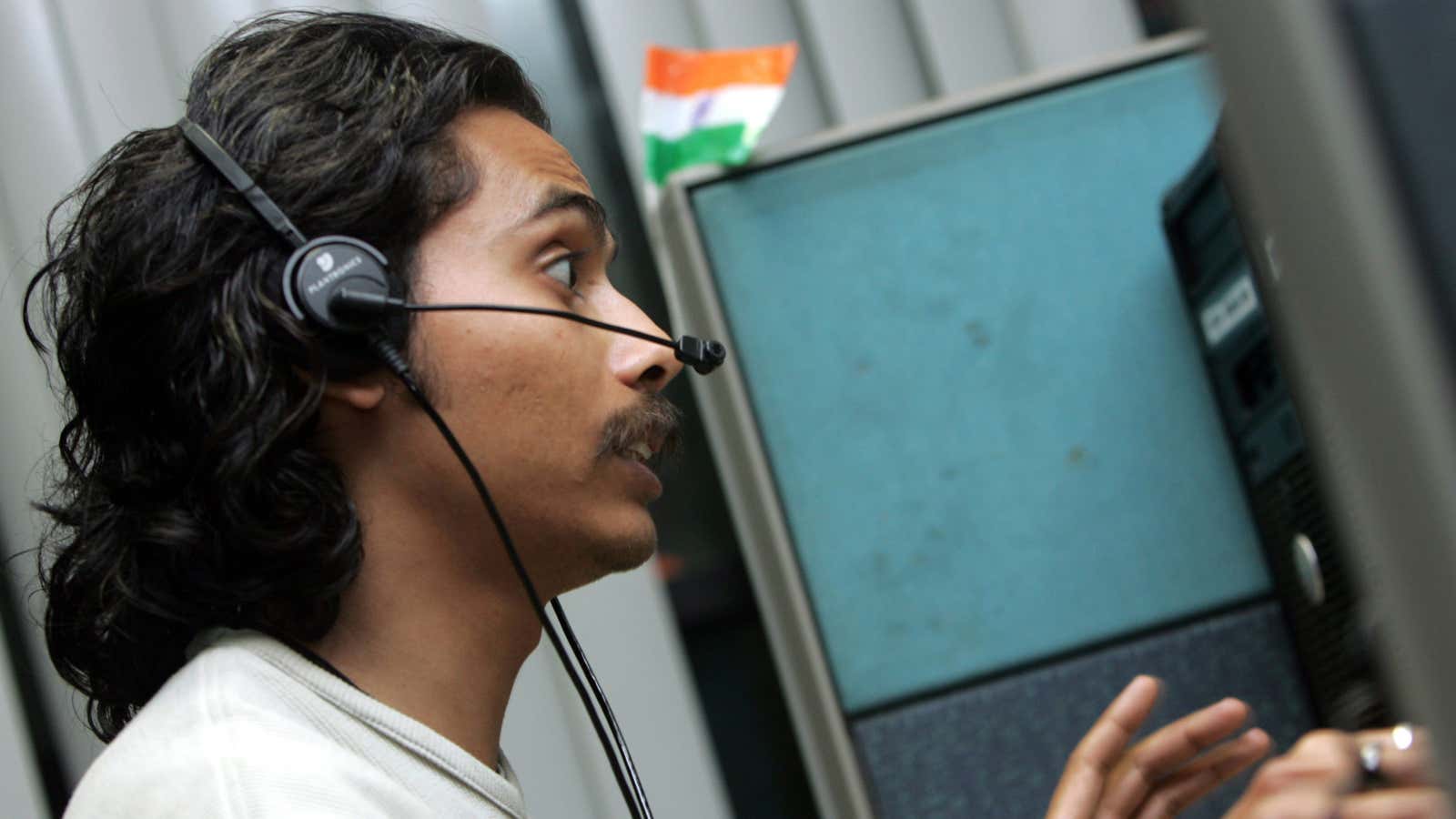At a time when Indian techies are living the nightmare of the Donald Trump administration’s clampdown on H-1B work visas, another set of professionals, call-centre workers, now face the threat of rising protectionism in the US.
On March 14, US senator Sherrod Brown held a press conference to highlight an old bill, the US Call Center Workers and Consumer Protection Act, that aims to keep call-centre jobs in the US instead of shipping them out to other countries. ”Most Americans want to support American jobs by buying American whenever they can and that includes the customer service they get from call centres,” a press release posted his website quoted Brown as saying.
The bill was first introduced in 2011 by Timothy Bishop, a Congress representative from New York. It proposes to make it mandatory for call-centre employees outside the US to identify the country they are based in and offer consumers the option of being transferred to a US centre. It also wants the US department of labour to maintain and make public a list of firms that relocate their call centres overseas, making them ineligible for federal loans, grants, or subsidies for three years.
In 2017, the bill was reintroduced by Gene Green from the Democratic Party and Republican David McKinley. “There are 54,000 call-centre jobs in the Greater Houston area alone and 2.5 million nationwide. It is important that American workers continue to have access to good service sector jobs and receive a liveable wage. Unfortunately, we have seen call centre jobs moved overseas to India, the Philippines, and other countries,” Green had said while reintroducing the bill.
The US lost 200,000 such jobs between 2006 and 2014, the press release on Brown’s website said, citing data from the bureau of labour.
Why it matters?
As of May 2017, India’s $154 billion business process outsourcing (BPO) industry was the country’s largest private sector employer, providing nearly 4 million direct and 12 million indirect jobs (pdf). Of the top 100 BPO firms across the world, 21 are from India, which includes names like Infosys, Tata Consultancy Services (TCS), and Wipro.
The industry, however, has gone slow on hiring recently with automation eating into some of the low-skilled jobs. This proposed legislation in the US now puts another cloud of uncertainty over it.
The shuttering of call centres in India isn’t being caused by protectionism in the US alone. Two years ago, the UK’s British Telecom closed down its units here to shift jobs back to that country. In 2011, British bank Santander shut its Indian call centres and moved its customer service operations back to the UK.
